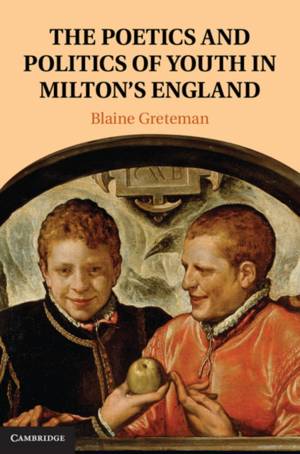
- Afhalen na 1 uur in een winkel met voorraad
- Gratis thuislevering in België vanaf € 30
- Ruim aanbod met 7 miljoen producten
- Afhalen na 1 uur in een winkel met voorraad
- Gratis thuislevering in België vanaf € 30
- Ruim aanbod met 7 miljoen producten
Zoeken
€ 183,45
+ 366 punten
Omschrijving
As the notion of government by consent took hold in early modern England, many authors used childhood and maturity to address contentious questions of political representation - about who has a voice and who can speak on his or her own behalf. For John Milton, Ben Jonson, William Prynne, Thomas Hobbes, and others, the period between infancy and adulthood became a site of intense scrutiny, especially as they examined the role of a literary education in turning children into political actors. Drawing on new archival evidence, Blaine Greteman argues that coming of age in the seventeenth century was a uniquely political act. His study makes a compelling case for understanding childhood as a decisive factor in debates over consent, autonomy, and political voice, and will offer graduate students and scholars a new perspective on the emergence of apolitical children's literature in the eighteenth century.
Specificaties
Betrokkenen
- Auteur(s):
- Uitgeverij:
Inhoud
- Aantal bladzijden:
- 264
- Taal:
- Engels
Eigenschappen
- Productcode (EAN):
- 9781107038080
- Verschijningsdatum:
- 19/08/2013
- Uitvoering:
- Hardcover
- Formaat:
- Genaaid
- Afmetingen:
- 152 mm x 231 mm
- Gewicht:
- 476 g

Alleen bij Standaard Boekhandel
+ 366 punten op je klantenkaart van Standaard Boekhandel
Beoordelingen
We publiceren alleen reviews die voldoen aan de voorwaarden voor reviews. Bekijk onze voorwaarden voor reviews.








